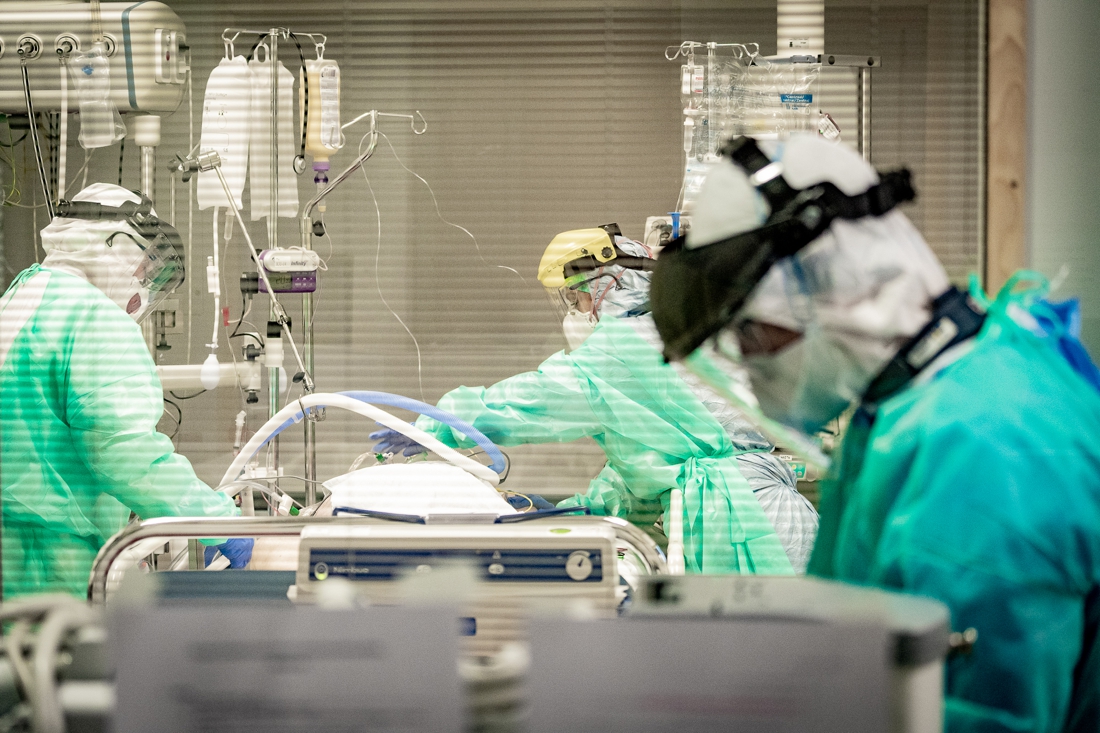By diversifying the activity, it is a question of not putting all your eggs in the same basket, sums up the winegrower Marie-Isabelle Guibbert (chteau La Lande Saint-Jean, 25 hectares of Saint-Loubs vines), who last year in the cultivation of potatoes and is projected on an activity of laying hens (while producing grape juice). Selling most of its bulk wines in trade, the Bordeaux operator notes “For two seasons of sales prices below cost”, which prompted it to convert to organic in 2019, but for the moment it does not bring it any commercial advantage (“We support the price and the risks of organic without having the valuation”).
To develop a direct sales network by giving its visitors “New arguments for coming to us”, Marie-Isabelle Guibbert launched into market gardening in 2020 with potatoes (Dsire and Nicola varieties) and hay (for pets and garden mulching). The winegrower stresses that she shared with her louse the idea of leaving wine monoculture in the original project of her installation. An idea exacerbated by the news. “If the market does not recover and we continue to freeze massively as in (April 2021 is the fourth year of freezing of the operation, after 2017, 2019 and 2020), we will need drastic changes on the operation , either by reducing the vines, or by increasing diversification “ Marie-Isabelle Guibbert analysis.
“Alternative“
This vision is shared by other winegrowers, as evidenced by the conference on diversification organized on March 24 by the Chamber of Agriculture of Gironde (CA33). With 130 participants, mostly wine growers, the enthusiasm for the subject surprised the organizers, validating the need for“Alternative to the stagnation and what viticulture is experiencing today” indicates Franois Rauscher, director of the full Diversification of CA33. It must be said that the Gironde department is very specialized in viticulture, representing 44% of its useful agricultural area (with 120,000 hectares of vines in 2019).
In this context, “There is a need to offer farmers and even more wine growers an offer of diversification. There are sectors looking for farmers ” points out Franois Rauscher, whose services have just put online files to diversify into vegetable crops (artichokes, asparagus, hemp, figs, hops, kiwis, hazelnuts, stevia, etc.) or breeding (Pauillac lamb, fat duck, free-range pork, broilers, laying hens, etc.) . “This is not going to solve everything” warns Franois Rauscher, who warns winegrowers about the need to “Ask yourself the right questions to diversify time, before it’s too late.” Many winegrowers find it hard to imagine themselves in another profession: you have to ask yourself the right questions (what land is available on my property? Is animal production possible? Should this crop be irrigated?). “
Prudence
“You have to be realistic, you can’t go for 2 hectares of potatoes like that, you have to experiment” confirms Marie-Isabelle Guibbert, who plays it safe with small workshops using her fallow plots. Having just sowed cereals (wheat for flour, beans and triticale), the winegrower is training laying hens: “Has given us perhaps a lead, a possibility. can make us an asset. “
If this area follows an individual logic, there are possibilities of integrating a sector project. The Nouvelle-Aquitaine region is thus working on the structuring of a hemp culture in partnership with the CA 33. “The department of Gironde and the agglomeration of Bordeaux can constitute an important basin in terms of consumption of edible hemp, well-being and hemp materials” indicates a press release from the region, which foresees first plantings in 2022 for “Allow a new diversification of the vineyard in this period of commercial crisis”.
–


